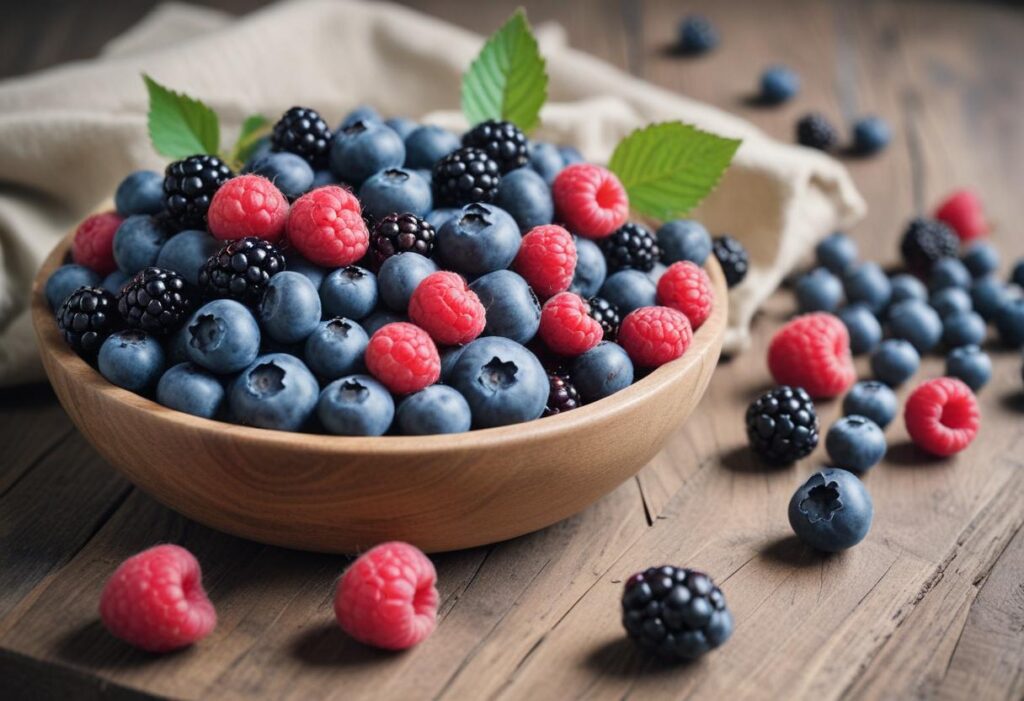Have you ever wondered why your parents always told you to drink orange juice when you felt a cold coming on? It turns out they were onto something! Vitamin C, also known as ascorbic acid, is a powerhouse nutrient that does so much more than just boost your immune system.
Let’s explore the incredible vitamin C health benefits and discover why this essential nutrient is a must-have in your daily diet.

What is Vitamin C?
Vitamin C, or ascorbic acid, is not just another nutrient on the list—it’s a vital one that your body needs to thrive. This water-soluble vitamin plays multiple roles in maintaining your health. Think of it as a multi-tasker, working behind the scenes to support your immune system, aid in collagen synthesis, and protect your cells from the wear and tear of daily life.
Imagine your body as a complex machine, with Vitamin C acting as the oil that keeps everything running smoothly. Whether it’s helping your skin stay firm and youthful or ensuring your wounds heal properly, Vitamin C is on the job.
Expert Insight:
Dr. Linus Pauling, a two-time Nobel laureate, was a strong advocate for the benefits of Vitamin C, particularly its role in fighting off colds and other infections. According to Pauling, “Vitamin C is one of the safest and most effective nutrients.”
Vitamin C Health Benefits
Let’s dive into the specific ways Vitamin C can enhance your health:
1. Immune Boost: Your Body’s First Line of Defense
Picture this: Your immune system is like an army, constantly fighting off invaders like viruses and bacteria.
Vitamin C is a key player in keeping this army strong and effective. By supporting the production and function of white blood cells, Vitamin C helps your body fend off infections and illnesses.
So, next time you’re feeling under the weather, remember that Vitamin C is on the front lines, fighting for you.
2. Powerful Antioxidant: Guarding Your Cells
Think of Vitamin C as your body’s personal bodyguard, shielding your cells from damage.
It acts as a powerful antioxidant, neutralizing harmful free radicals that can lead to chronic diseases and aging.
This protection extends to your skin, heart, and even your brain, keeping you feeling and looking younger for longer.
3. Collagen Formation: The Secret to Youthful Skin
Ever wonder why some people seem to age gracefully?
The secret might just be in their Vitamin C intake. Vitamin C is essential for collagen synthesis, which is the protein that gives your skin its elasticity and firmness.
By supporting collagen production, Vitamin C helps maintain a youthful complexion, reducing wrinkles and keeping your skin looking vibrant.
4. Wound Healing: Speeding Up Recovery
Got a cut or scrape? Vitamin C is there to help.
It plays a critical role in the repair and regeneration of tissues, which means it’s essential for efficient wound healing.
Whether it’s a small cut or a more serious injury, having enough Vitamin C can make all the difference in how quickly you recover.
5. Heart Health: Supporting a Healthy Heartbeat
Vitamin C isn’t just about skin and immunity—it’s also good for your heart.
It may contribute to heart health by improving blood vessel function and lowering blood pressure.
By keeping your cardiovascular system in top shape, Vitamin C helps reduce the risk of heart disease, one of the leading causes of death worldwide.
6. Brain Support: Protecting Your Mind
As we age, our brains need all the help they can get. Vitamin C, with its antioxidant properties, may protect the brain from age-related decline.
It’s involved in neurotransmitter production, which means it could also support cognitive function and mental clarity.
Think of it as a little boost for your brain power.
7. Iron Absorption: Making the Most of Your Meals
If you follow a vegetarian or vegan diet, you know that getting enough iron can be a challenge.
Vitamin C can help by enhancing the absorption of non-heme iron from plant-based foods.
Just a squeeze of lemon juice on your spinach salad could make a big difference in how much iron your body absorbs.
8. Stress Resilience: Standing Strong in Tough Times
Life can be stressful, and your body needs all the support it can get.
Vitamin C plays a role in your body’s response to stress, helping you stay resilient during challenging times.
By reducing the harmful effects of stress, Vitamin C keeps you balanced and ready to face whatever comes your way.
Foods rich with Vitamin C
Incorporating Vitamin C into your diet is easier—and tastier—than you might think. Here are some of the top foods rich in this essential nutrient:
- Citrus fruits: Oranges, lemons, and grapefruits are classic sources of Vitamin C.
- Berries: Strawberries, blueberries, and raspberries not only taste great but are also packed with Vitamin C.
- Kiwi: This small, green fruit is a Vitamin C powerhouse.
- Bell peppers: Red peppers, in particular, are loaded with Vitamin C.
- Broccoli: A versatile veggie that’s as nutritious as it is delicious.
- Spinach: This leafy green is a great way to add Vitamin C to your diet.
- Tomatoes: Whether fresh or in a sauce, tomatoes are a good source of Vitamin C.
- Pineapple: Sweet and tangy, pineapple is another excellent source.
- Papaya: Tropical and refreshing, papaya is rich in Vitamin C.
- Guava: This lesser-known fruit is one of the richest sources of Vitamin C.

Frequently Asked Questions (FAQs)
1. How much Vitamin C should I take daily?
The recommended daily intake of Vitamin C varies depending on age, gender, and life stage. For adults, the general recommendation is about 65 to 90 milligrams per day. However, during times of stress or illness, your body might benefit from higher amounts. Always consult with a healthcare provider before taking large doses of Vitamin C supplements.
2. Can I get too much Vitamin C?
While Vitamin C is water-soluble and excess amounts are usually excreted through urine, extremely high doses (over 2,000 milligrams per day) can cause side effects such as stomach upset, diarrhea, and kidney stones. It’s best to stick to the recommended amounts unless advised otherwise by a healthcare professional.
3. Does Vitamin C help prevent colds?
Vitamin C has long been touted as a remedy for the common cold. While it might not prevent you from catching a cold, studies suggest that it can help reduce the duration and severity of cold symptoms. Regular Vitamin C intake can help keep your immune system strong, which may help your body fight off infections more effectively.
4. What are the best food sources of Vitamin C?
Citrus fruits like oranges, lemons, and grapefruits are among the most well-known sources of Vitamin C. However, other excellent sources include strawberries, kiwi, bell peppers, broccoli, and spinach. Incorporating a variety of these foods into your diet ensures you get enough Vitamin C naturally.
5. Is Vitamin C good for skin health?
Absolutely! Vitamin C is essential for collagen production, which helps maintain skin elasticity and reduce the appearance of wrinkles. Additionally, its antioxidant properties protect your skin from damage caused by free radicals, leading to a more youthful and vibrant complexion.





